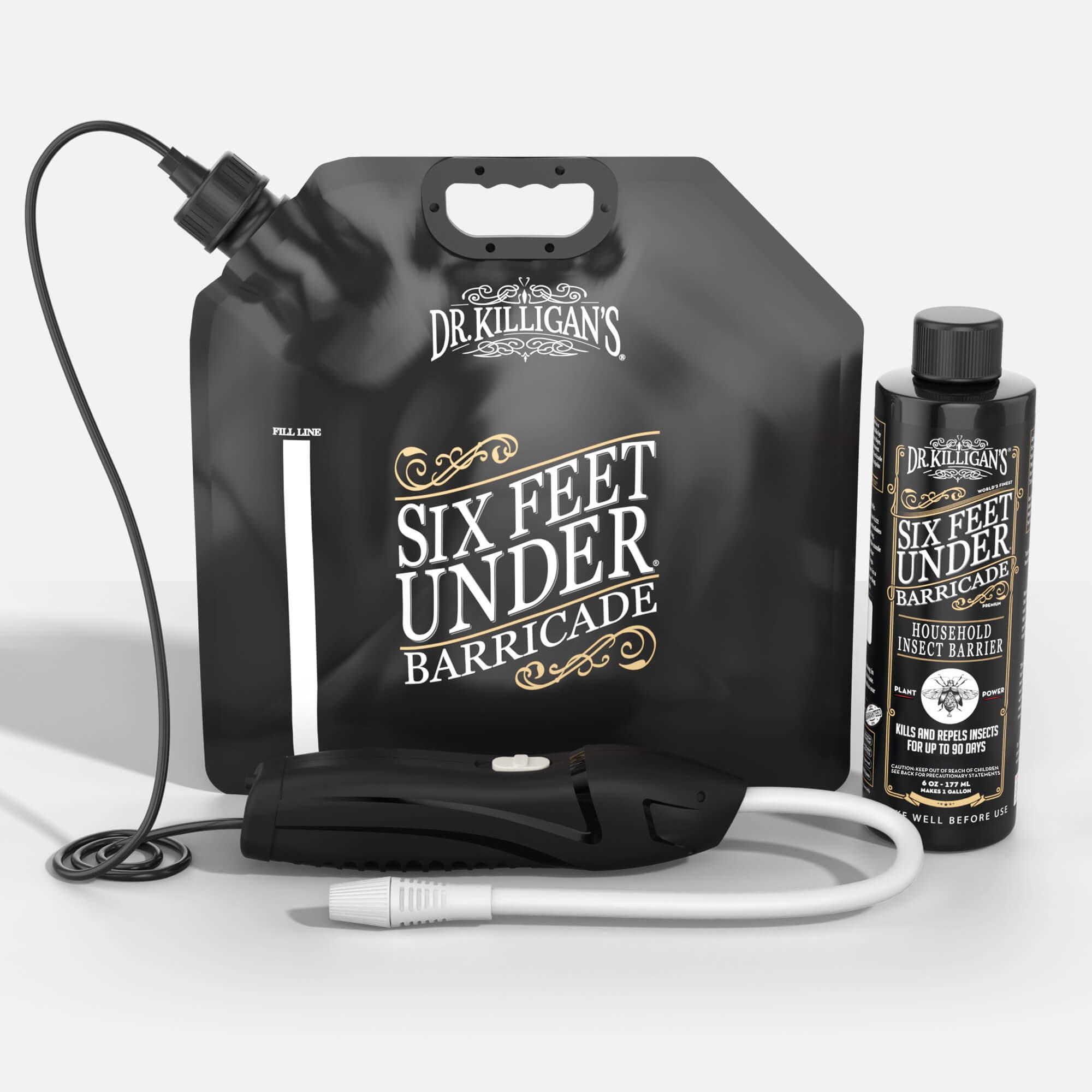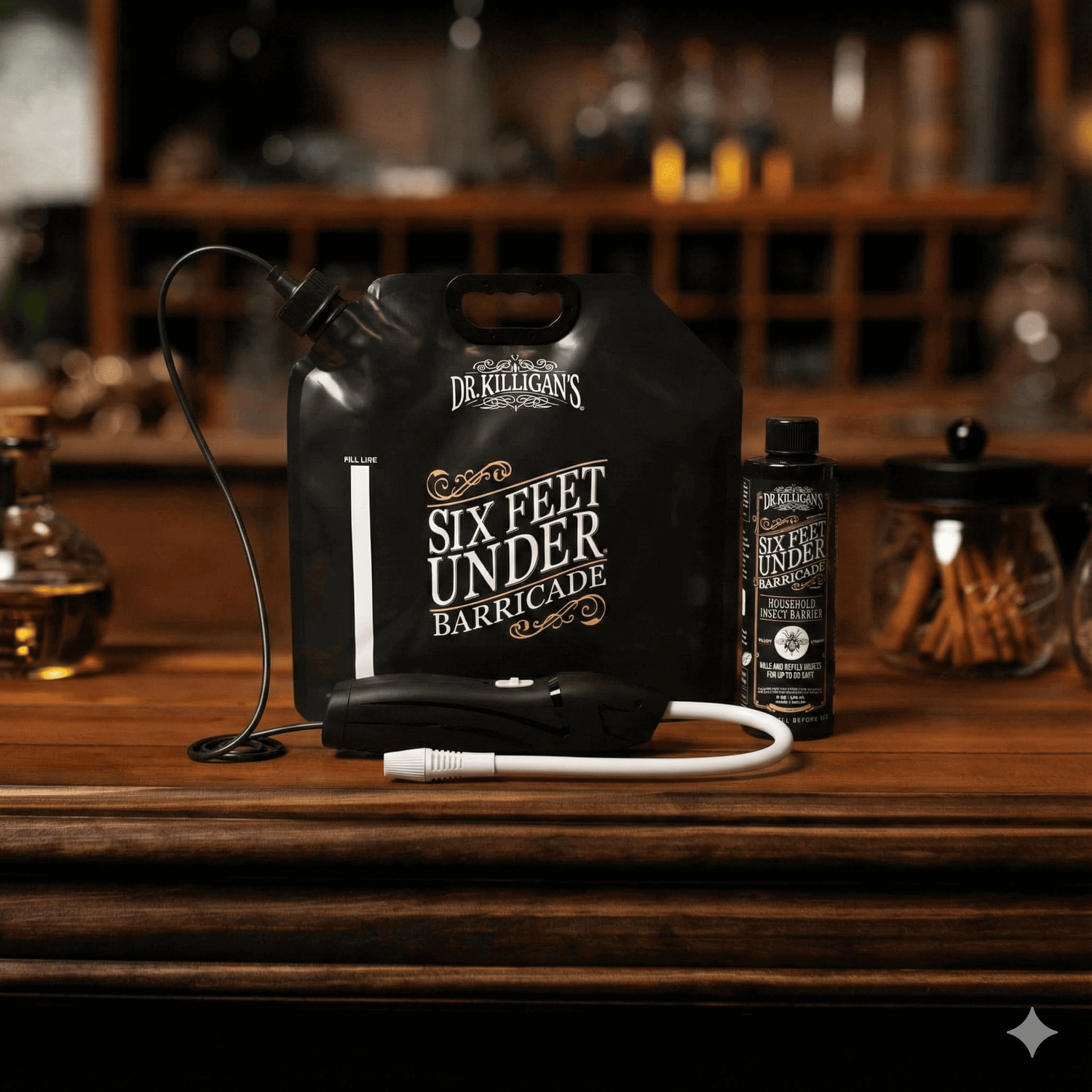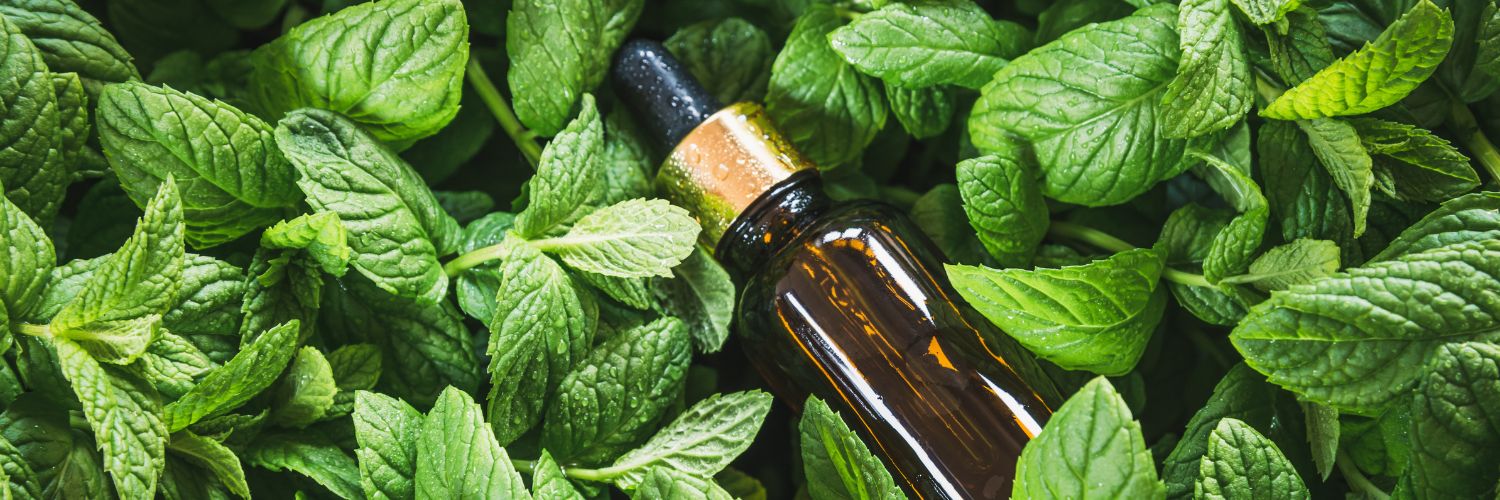Updated on July 2nd, 2025
Spiders are everywhere—just maybe not where (or when) you want them. If you’ve ever spotted a web in the corner of your ceiling or found one crawling out from under the bathroom sink, you’re not alone.
There are over 35,000 known species of spiders, and while most are harmless and even helpful, it’s understandable if you don’t want them living rent-free in your home. Whether lurking in the attic, garage or closet, these eight-legged visitors can quickly become unwelcome guests.
If you’re wondering how to get rid of spiders in your home—and keep them from coming back—this guide breaks down where they hide, the types you’re most likely to see indoors, how to prevent infestations and which natural solutions work best (without harsh chemicals).
Looking for a safer spider spray? Many homeowners are turning away from harsh chemical pesticides in search of safer alternatives. Our solution? A plant-powered powder that kills spiders without the need for toxic ingredients—safe for use around people and pets when used as directed.
Common places spiders hide in your home (and how to spot them)
Spiders don’t randomly show up in your home—they settle in spaces that offer the three things they love most: quiet, darkness and a steady food supply (read: other insects). Understanding where spiders hide indoors is the first step in keeping them out for good.
Here are the seven most common hiding spots for spiders in your home—and how to spot signs of them early:
1. Inside closets (especially the neglected ones)
Rarely-used closets—think the entryway, coat closet or utility storage—are perfect for spiders. These dark, undisturbed spaces give them cover and plenty of corners to spin their webs. Look for cobwebs tucked into the upper corners or around the baseboards.
2. Bathrooms, kitchens and basements
Spiders are drawn to moisture because it attracts other bugs. Inspect under sinks, behind toilets and around drains. Basements are especially prone to infestations due to humidity, clutter and lack of foot traffic.

3. Ceiling corners and light fixtures
Have you ever looked up and wondered: How long has that web been in that ceiling fixture? Why is there a cobweb dangling between photos of my pets and children on the wall? Has anyone else noticed that tangle of silk above the dining table?
Cobwebs in ceiling corners and around overhead lighting are a giveaway. These are favorite hiding spots for spiders—perfect for catching prey and staying out of sight for weeks.
4. Along windowsills
Windows act as both entry points and hunting zones. Spiders often build webs here to catch insects drawn to light. Regular dusting is a simple but effective way to remove webs and discourage return visits.
5. Cluttered areas and storage zones
A spider’s favorite person? The hoarder. And it’s not just spiders—cockroaches, mice and other pests love clutter too. Boxes of once-a-year holiday decorations, piles of old magazines and shelves packed with trinkets offer the perfect undisturbed real estate. If it hasn’t been touched in months, there’s a good chance something’s hiding there—and it might have eight legs.

6. Basements and attics
If spiders wrote real estate listings, basements and attics would be prime luxury properties. They’re dark, quiet, rarely disturbed and packed with amenities—namely, other bugs to snack on and cozy corners to nest in. Toss in some forgotten furniture and cardboard boxes and you’ve basically handed them a furnished apartment with a stocked fridge.
7. Garages and sheds
These outdoor extensions of your home offer prime real estate for spiders. Shelves, ladders, plant pots and corners become nesting grounds during colder months. Keep an eye out in late fall and winter—spiders may move indoors as temps drop.
Meet the most common spiders in your home and how to get rid of them
If you’ve been spotting cobwebs in corners or unexpected visitors crawling across the floor, you’re not alone. Spiders are some of the most common household pests—and while most are harmless, few people are thrilled to share living space with them.
In this section, we’ll explore the types of spiders most often found in homes, what attracts them, and—most importantly—how to get rid of spiders in your home and keep them from coming back.
American house spider
Small, brownish-gray and shy by nature, the American house spider is the most common indoor spider. It builds classic cobwebs in quiet, hidden corners—think attics, basements, behind furniture or in storage sheds.

How to get rid of American house spiders: Use Dr. Killigan's Insect Buster to apply a fine layer of Dust to Dust Plant-Powered Insect Spray along baseboards, around door frames and near windows. This plant-powered powder kills spiders naturally—without toxic chemicals.
For long-lasting spider control, leave the powder in place—it remains effective as long as it’s visible. When you’re ready to clean up, use a dustpan and broom or a vacuum equipped to handle fine powders, ideally one with a HEPA filter. While Dust to Dust is harmless to people and pets when used as directed, its fine, abrasive particles can wear down standard vacuum components over time.
Jumping spider
These fuzzy little hunters don’t spin webs to catch prey—they stalk and pounce. Jumping spiders are fast and curious but generally harmless. Note: They prefer to live outdoors, but may set up shop indoors where prey is plentiful—near windows, doors and other light-filled areas.

How to kill jumping spiders indoors: Target entry points like window sills and baseboards with Dust to Dust. Use the Insect Buster for precise, no-mess application. If you just clear away their hiding spots, they’ll likely return. Using a powder is key to preventing spiders from coming back.
Brown recluse
This larger spider, often measuring an inch or more, prefers warm, undisturbed areas like piles of clothing, shoes, firewood or cardboard boxes—especially in southern and central U.S. states. While not aggressive and unlikely to bite unless they feel threatened or are pressed against the skin, their bite can be medically significant.
How to get rid of brown recluse spiders indoors: Start by clearing clutter in basements, closets and storage zones—these quiet spaces are prime hiding spots. Then apply Dust to Dust with the Insect Buster around baseboards, behind furniture and in corners where spiders may travel or nest. This plant-powered powder kills spiders naturally.

Prevent brown recluse spiders from entering your home: Outside, remove clutter like woodpiles, rocks and cardboard boxes near your home’s foundation. Avoid stacking firewood directly against your house. When handling outdoor materials, wear gloves to reduce the risk of contact. A perimeter application of Dust to Dust near exterior doorways, vents and cracks can stop brown recluse spiders before they sneak inside.
Black widow
Easily identified by their glossy black bodies and iconic red hourglass markings, black widows are one of the most feared spiders. They bite and their venom, while not as toxic as a brown recluse, may require medical attention depending on the sensitivity of the one bitten.
They prefer dark, dry, and undisturbed spaces like crawl spaces, sheds, garages and behind storage bins or appliances.

How to get rid of black widow spiders indoors: Apply Dust to Dust using the Insect Buster along baseboards, behind furniture and in corners where spiders may travel or nest. Focus on secluded areas that foot traffic and vacuuming don’t typically reach—like behind appliances, under shelving or along room edges. A thin, even layer is all it takes—as long as spiders encounter it, the powder will do its job.
Prevent black widow spiders from coming inside: If black widows are common in your area, apply a layer of Dust to Dust around the perimeter of your property. If perimeter treatment isn’t possible, focus on dark, dry and secluded spots where black widows tend to build nests. Remember, Dust to Dust stays effective as long as it’s visible—outdoor elements like wind and rain can wash it away, so regular reapplication may be necessary for ongoing protection.
Get rid of spiders in your home—for good
If you’re serious about keeping spiders out of your home, you need more than just a broom and bravery. You need a long-lasting, natural spider control solution that works.
Dr. Killigan’s Insect Buster is the go-to tool for applying Dust to Dust, our plant-powered insect powder—an alternative to diatomaceous earth—that kills spiders without toxic chemicals. This fine, abrasive powder clings to spiders and disrupts their metabolism—leading to death by dehydration or starvation. It's safe for people and pets when used as directed, but lethal for spiders and the insects they feed on.
The Insect Buster allows for mess-free, precision application—along baseboards, in dark corners or anywhere spiders are likely to hide. Whether you're battling brown recluses, black widows or just the everyday house spider, this DIY spider control combo is your best defense.
Safe. Precise. Powerful.
Backed by a 100% satisfaction guarantee.
Stop wondering how to get rid of spiders in your home. Start doing it—with natural pest control that works and looks good doing it.

















